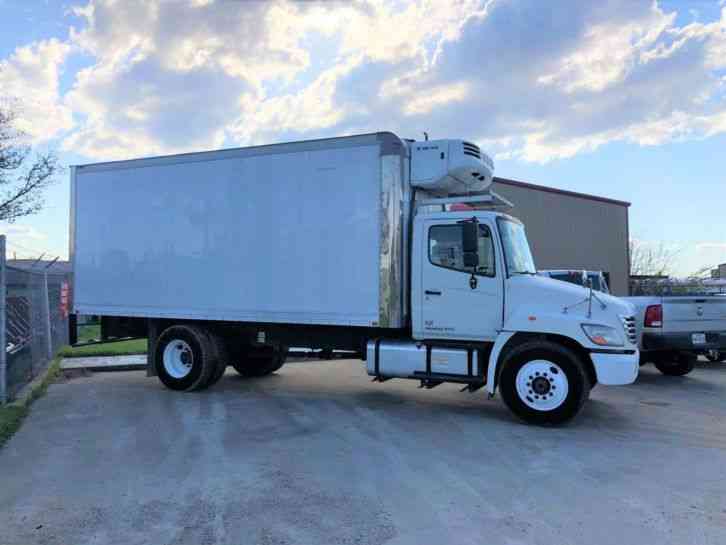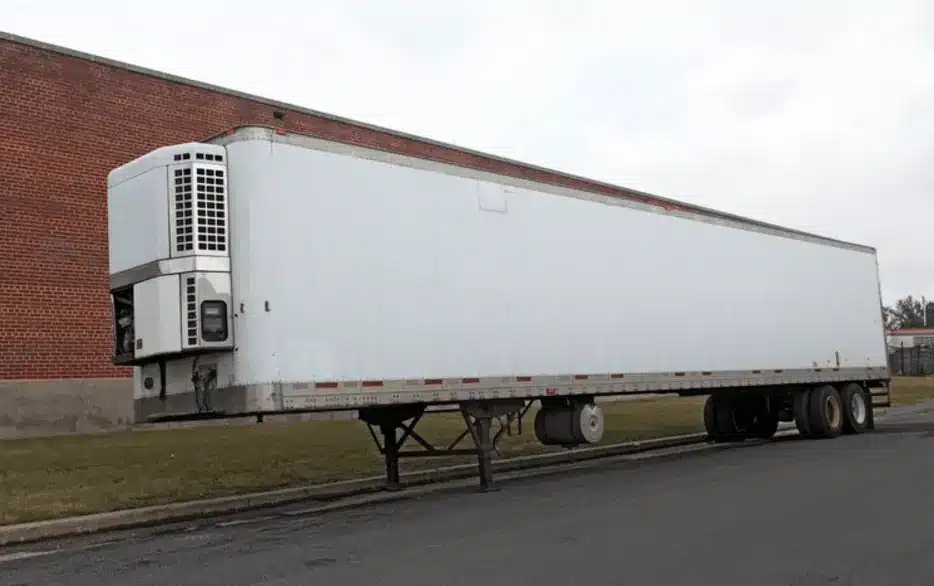Refrigerated Transportation Thermo King: The Ultimate Service
Refrigerated Transportation Thermo King: The Ultimate Service
Blog Article
Leading Technologies in Transportation Refrigeration: Enhancing Effectiveness and Safety And Security
The landscape of transport refrigeration is undertaking significant change, driven by developments intended at enhancing both performance and safety. As these developments proceed to progress, it is necessary to discover their ramifications on operational techniques and regulative conformity, motivating a more detailed assessment of how they reshape the future of transportation refrigeration.
Smart Temperature Keeping An Eye On Systems
In the world of transport refrigeration, clever temperature surveillance systems have actually become a vital innovation for ensuring the honesty of temperature-sensitive goods. These sophisticated systems take advantage of Web of Points (IoT) technology to provide real-time information on temperature level fluctuations, allowing drivers to preserve ideal conditions throughout the supply chain. By constantly tracking the temperature level of refrigerated containers and lorries, companies can promptly identify variances that might compromise item top quality.

Moreover, smart tracking systems usually include automated alerts and alerts, allowing stakeholders to respond immediately to any kind of possible concerns. This proactive method not just reduces the threat of spoilage however also enhances conformity with regulatory standards governing food safety and security and pharmaceutical transportation.
The combination of data analytics within these systems also promotes anticipating upkeep, aiding operators to anticipate potential devices failures prior to they occur. This ability lowers downtime and optimizes functional performance, eventually leading to cost financial savings.
Eco-Friendly Refrigerants
Smart temperature level monitoring systems play an essential duty in maintaining product top quality, however the performance of transportation refrigeration also pivots on the option of cooling agents used. In contrast, emerging alternatives like hydrocarbon-based cooling agents and hydrofluoroolefins (HFOs) present lower GWP choices, using both performance and sustainability.
These eco-friendly cooling agents not only reduce environmental impact but likewise align with international policies targeted at phasing out harmful substances. Their fostering can cause boosted power performance, inevitably reducing operating prices for transport refrigeration systems. The usage of natural refrigerants, such as ammonia and carbon dioxide, has actually obtained grip due to their excellent thermodynamic buildings and reduced environmental impact.
Investing in eco-friendly refrigerants is not simply a regulative compliance step; it represents a tactical choice that enhances brand reputation and fosters client loyalty. thermo king truck refrigeration. By prioritizing lasting methods, companies can add to a greener future while making sure the integrity of transferred items
Advanced Insulation Materials
Utilizing innovative insulation materials is vital for optimizing transportation refrigeration systems, as they dramatically boost power performance and keep constant temperature control. Conventional insulation techniques commonly drop brief in protecting against thermal transfer, causing boosted energy intake and rising and fall temperatures within refrigerated compartments.
Emerging materials such as vacuum cleaner insulated panels (VIPs) and aerogels supply remarkable thermal resistance, enabling thinner profiles without compromising efficiency. VIPs, for circumstances, use a vacuum cleaner layer to decrease convective and conductive heat transfer, making them excellent for space-constrained applications. Aerogels, known for their lightweight and permeable framework, offer exceptional insulation while substantially reducing overall system weight.
Additionally, including stage adjustment products (PCMs) right into insulation systems can additionally stabilize temperature levels throughout transportation. These materials soak up and launch thermal energy, properly buffering versus outside temperature variants.
The integration of these sophisticated insulation products not only reduces the operational costs connected with power intake however additionally expands the shelf life of temperature-sensitive products. As the transportation refrigeration sector remains to advance, the adoption of ingenious insulation innovations will be crucial in enhancing both effectiveness and security in chilled transport.
Automated Route Optimization
The performance of transport refrigeration systems is greatly boosted via automated course optimization, which leverages innovative algorithms and real-time data to establish one of the most effective courses for delivery. By analyzing different elements such as website traffic patterns, weather, and delivery home windows, these systems can considerably minimize travel time and gas consumption.
Automated route optimization minimizes human error and subjective decision-making, which can result in inadequacies. This modern technology makes it possible for fleet supervisors to allocate resources better, guaranteeing that chilled items preserve their required temperature level throughout the journey. By maximizing courses, companies can additionally boost consumer fulfillment with timely shipments.
Furthermore, automated systems can adjust to unexpected conditions, such as road closures or unexpected website traffic spikes, enabling vibrant rerouting. This versatility not just protects the integrity of temperature-sensitive items but likewise adds to total operational effectiveness.
Executing automated route optimization can cause significant price savings while decreasing the carbon impact connected with transportation. As services significantly focus on sustainability, this technology stands apart as an important part in modern transport refrigeration, lining up functional objectives with ecological duty. Ultimately, automated route optimization represents a substantial advancement in the mission for performance and safety in transport refrigeration.

Real-Time Information Analytics
Automated route optimization dramatically take advantage of the combination of real-time information analytics, which gives essential insights into the efficiency of transport refrigeration systems. By making use of real-time information, transport drivers can keep an eye on temperature variations and devices performance, guaranteeing that disposable products are maintained within helpful hints required specifications throughout transit. This positive approach not just enhances the top quality of the transported items however likewise reduces the threat of wasting and loss.

Along with enhancing effectiveness, real-time analytics check these guys out enhances safety by making sure conformity with governing standards for temperature control. This not just protects public health and wellness however additionally strengthens a business's credibility - thermo king transport refrigeration. As the transportation refrigeration market develops, the integration of real-time data analytics becomes a keystone for driving technology, sustainability, and functional excellence
Final Thought
In conclusion, the innovations in transportation refrigeration considerably enhance both effectiveness and security within the sector. Collectively, these advancements represent a crucial advancement in transportation refrigeration, guaranteeing conformity with regulatory standards and advertising a greener future.
The landscape of transportation refrigeration is undergoing considerable change, driven by developments aimed at boosting both performance and security.Smart temperature level monitoring systems play an important function in preserving product high quality, but the performance of transport refrigeration also hinges on the option of refrigerants made use of. Their adoption can lead to improved power efficiency, eventually internet minimizing operating expenses for transport refrigeration systems. Eventually, automated course optimization stands for a considerable improvement in the quest for performance and safety in transport refrigeration.
In conclusion, the advancements in transportation refrigeration substantially enhance both efficiency and security within the industry.
Report this page